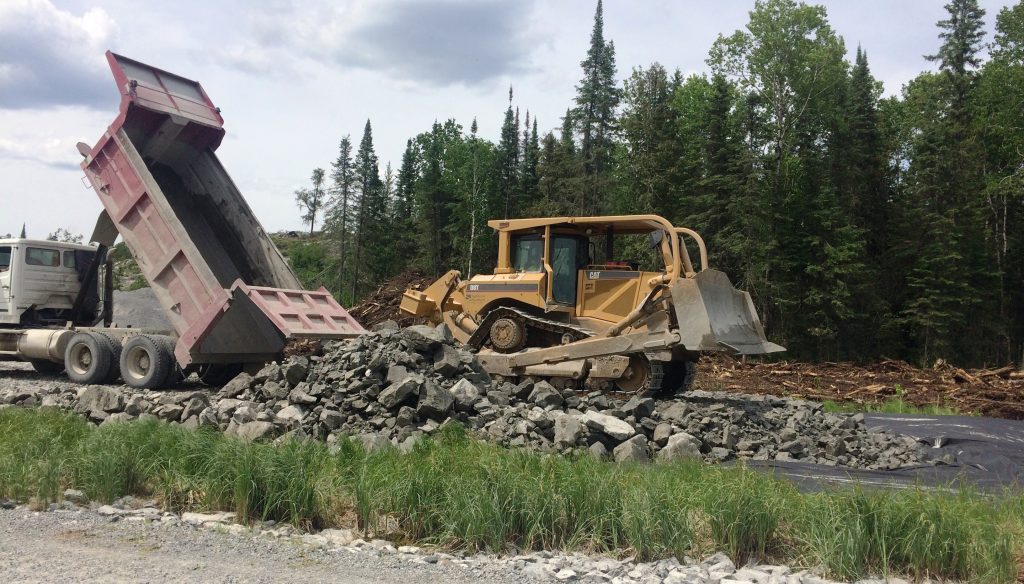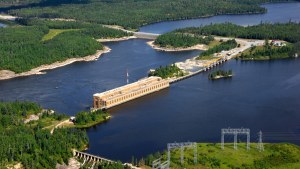WINNIPEG — Manitoba had its share of newsmakers in 2017, with delayed megaprojects, historic infrastructure improvements and investigations at the top of the list.
An RCMP investigation alleging millions in construction fraud against Caspian Construction, a Winnipeg-based contractor that was tasked with building Winnipeg’s police headquarters as well as a mail processing facility, was a notable story this year and continues to be in the news.
The police headquarters project first began attracting heat after it was hit with multiple negative audits. Back in 2009, the project was estimated to cost $135 million. By 2013, costs had ballooned to $210 million.
Other ballooning projects in the news in 2017 were the Keeyask Generating Station and the Bipole III Transmission Line.
Manitoba Hydro requested a 7.9 per cent rate hike in December in part because of cost overruns and delays at the two projects.
The combined cost of the projects was estimated at approximately $13 billion, with the budget for Keeyask at $8.7 billion and Bipole III at $5.04 billion, representing an increase of $2.2 billion and $0.4 billion respectively.
“Previous financial plans did not adequately prepare Manitoba Hydro to absorb the significant increase in operating and borrowing costs that result from the completion of the major capital projects while still ensuring the continued financial strength of the corporation,” said Manitoba Hydro media relations officer Bruce Owen.
Another story involving Manitoba Hydro took matters all the way to the Supreme Court of Canada.
After a five-year court battle, the Merit Contractors Association’s case against Manitoba Hydro was rejected by the Supreme Court of Canada in March of this year.
Merit sought to challenge Manitoba Hydro’s requirement that contractors join unions and pay dues to work on projects. Two collective agreements and a Manitoba Hydro-Electric Board tendering policy require that contractors working on larger-scale hydro projects, such as the Bipolle III project, Wuskwatim Generation Project and the Keeyask Generating Station, join a union and pay applicable union dues. Merit argued that the rules infringed on employees’ Charter rights.
Merit Manitoba president Yvette Milner said in the article they were disappointed with the decision and added, “The case is important to Merit members in that it relates to government policy that requires Project Labour Agreements that favour building trade unions.”
A further development on this topic surfaced in November when the province announced it was starting a consultation process to change its procurement practices and move away from project labour agreements.
The move was met with both praise and disappointment from stakeholders in the industry.
“Our concern is where does the impetus come from? We accept and respect that they are making evidence-based decisions, but their press release echoes sentiments expressed by particular segments of the construction industry that tend to be self-serving and motivated by private interest,” said Sudhir Sandhu, CEO of the Manitoba Building Trades.
While labour issues and mega-costs were tops for Manitoba in 2017, one infrastructure project was finally realized as construction of the Shoal Lake 40 First Nation’s Freedom Road began.
The Journal of Commerce reported that construction began in May on the first leg of an all-season, two-lane road that will link the First Nation community to the Trans-Canada Highway in southeastern Manitoba.
The isolated reserve was under one of Canada’s longest boil-water advisories and long sought for government funding for the road.
Completing the 24-kilometre Freedom Road will mean needed infrastructure projects in the community, such as a water and sewage treatment plant, can come to fruition.










Recent Comments
comments for this post are closed